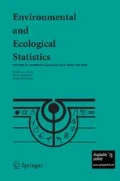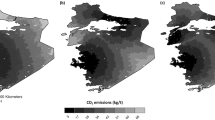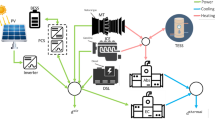Abstract
Optimizing sustainable renewable energy portfolios is one of the most complicated decision making problems in energy policy planning. This process involves meeting the decision maker’s preferences, which can be uncertain, while considering several conflicting criteria, such as environmental, societal, and economic impact. In this paper, rather than using existing techniques, a novel multi-objective decision making (MODM) model, named fuzzy goal programming with interval target (FGP-IT), is proposed and constructed based on recent developments and concepts in fuzzy goal programming (FGP) and revised multi-choice goal programming (RMCGP). The model deals with decision making problems involving a high level of uncertainty by offering decision makers a more flexible way to formulate and express their preferences, namely, fuzzy interval target goals. The proposed method is used to optimize a hypothetical sustainable wind energy portfolio in Algeria. The results show that the FGP-IT model is capable of assisting decision makers with uncertain preferences in making such complicated decisions.
Similar content being viewed by others
References
Aalaei A, Davoudpour H (2016) Revised multi-choice goal programming for incorporated dynamic virtual cellular manufacturing into supply chain management. Eng Appl Artif Intell 47(1):3–15
Aouni B, Martel JM, Hassaine A (2009) Fuzzy goal programming model: an overview of the current state of-the art. J Multi Crit Decis Anal 16(1):149–161
Aouni B, Abdelaziz FB, La Torre D (2012) The stochastic goal programming model: theory and applications. J Multi Crit Decis Anal 19(1):185–200
Attari MYN, Pasandide HSZ, Agaie A, Niaki STA (2017) Presenting a stochastic multi choice goal programming model for reducing wastages and shortages of blood products at hospitals. J Ind Syst Eng 10(1):81–96
Barnett M, Brock W, Hansen LP (2020) Pricing uncertainty induced by climate change. Rev Financial Stud 33(3):1024–1066
Bravo M, Gonzalez I (2009) Applying stochastic goal programming: a case study on water use planning. Eur J Operation Res 196(3):1123–1129
Burke M, Dykema J, Lobell AB, Miguel E, Satyanath S (2015) Incorporating climate uncertainty into estimates of climate change impacts. Rev Econ Stat 97(2):461–471
Chang CT (2007) Multi-choice goal programming. Omega 35(4):389–396
Chang CT (2008) Revised multi-choice goal programming. Appl Math Model 32(12):2587–2595
Charnes A, Cooper WW (1961) Management models and industrial applications of linear programming. Wiley, New York
Chen LH, Tsai FC (2001) Fuzzy goal programming with different importance and priorities. Eur J Operation Res 133(1):548–556
Daim TU, Kayakutlu G, Cowan K (2010) Developing Oregon’s renewable energy portfolio using fuzzy goal programming model. Comput Ind Eng 59(1):786–793
Dogan E (2015) Revisiting the relationship between natural gas consumption and economic growth in Turkey. Energy Sources Part B 10(1):361–370
Fischer MM (2019) Quantifying the uncertainty of variance partitioning estimates of ecological datasets. Environ Ecol Stat. https://doi.org/10.1007/s10651-019-00431-6
Ghosh S, Basu SC, Sengupta PP (2010) Improvement of financial efficiency and cost effectiveness in energy sector: a case study from Indian thermal power plant. In ICEMT 2010–2010 international conference on education and management technology proceedings (512–516)
Ghouali S, Guellil MS, Belmokaddem M (2019) Looking over the Horizon 2030: efficiency of renewable energy base plants in Algeria using fuzzy goal programming. In: Hatti M (ed) Smart energy empowerment in smart and resilient cities. Springer, New York, pp 329–337
Haddah B, Liazid A, Ferreira P (2017) A multi-criteria approach to rank renewables for the Algerian electricity system. Renew Energy 107(1):462–472
Himri Y, Rehman S, Draoui B, Himri S (2008) Wind power potential assessment for three locations in Algeria. Renew Sustain Energy Rev 12(1):2488–2497
Ho HP (2019) The supplier selection problem of a manufacturing company using the weighted multi-choice goal programming and MINMAX multi-choice goal programming. Appl Math Model 75(1):819–836
Hocine A, Kouaissah N (2019) XOR analytic hierarchy process and its application in the renewable energy sector. Omega. https://doi.org/10.1016/j.omega.2019.06.008
Hocine A, Kouaissah N, Bettahar S, Benbouziane M (2018) Optimizing renewable energy portfolios under uncertainty: a multi-segment fuzzy goal programming approach. Renew Energy 129(1):540–552
Hocine A, Zheng-Yun Z, Kouaissah N, Der-Chiang L (2020) Weighted-additive fuzzy multi-choice goal programming (WA-FMCGP) for supporting renewable energy site selection decisions. Eur J Operation Res. https://doi.org/10.1016/j.ejor.2020.02.009
Hoffmann VH, Trautmann T, Hamprecht J (2009) Regulatory uncertainty: a reason to postpone investments? not necessarily. J Manage Stud 46(7):1227–1253
Hussain T, Hassan SB, Chesneau C (2019) A new probability model with application to heavy-tailed hydrological data. Environ Ecol Stat 26(1):127–151
Ignizio JP (1985) Introduction to linear goal programming. Sage, Beverly, Hills
Jayaraman R, La Torre D, Malik T, Pearson YE (2015) Optimal labor allocation for energy, economic and environmental sustainability in the United Arab Emirates: a goal programming approach. Energy Procedia 75(1):2999–3006
Jayaraman R, Colapinto C, Liuzzi D, La Torre D (2017a) Planning sustainable development through a scenario-based stochastic goal programming model. Oper Res Int Journal 17(3):789–805
Jayaraman R, Colapinto C, La Torre D, Malik T (2017b) A Weighted Goal Programming model for planning sustainable development applied to Gulf Cooperation Council Countries. Appl Energy 185(1):1931–1939
Jones DF, Tamiz M (2010) Practical goal programming. Springer, New York
Kouaissah N, Hocine A (2020) Optimizing sustainable and renewable energy portfolios using a fuzzy interval goal programming approach. Comput Ind Eng. https://doi.org/10.1016/j.cie.2020.106448
Kraft J, Kraft A (1978) On the relationship between energy and GNP. J Energy Dev 3(2):401–403
Kwak NK, Lee CW, Kim JH (2005) An MCDM model for media selection in the dual consumer/industrial market. Eur J Operation Res 166(1):255–265
Lai YJ, Hwang CL (1994) Fuzzy multiple objective decision making: methods and applications. Lecture notes in economies and mathematical systems. Springer, New York
Lee SM (1972) Goal programming for decision analysis. Auerbach, Philadelphia
Lee CF, Lin SJ, Lewis C (2008) Analysis of the impacts of combining carbon taxation and emission trading on different industry sectors. Energy Policy 36(2):722–729
Mirzaee H, Naderi B, Pasandideh SHR (2018) A preemptive fuzzy goal programming model for generalized supplier selection and order allocation with incremental discount. Comput Ind Eng 122(1):292–302
Moravcsik MJ (1984) Life in a multidimensional world. Scientometrics 6(2):75–86
Mouslim H, Belmokaddem M, Benbouziane M, Melloul S (2014) A fuzzy goal programming formulation with multiple target levels. J Multi Crit Decis Anal 21(3–4):223–235
Mrabet Z, AlSamara M, Jarallah SH (2017) The impact of economic development on environmental degradation in Qatar. Environ Ecol Stat 24:7–38
Narasimhan R (1980) Goal programming in a fuzzy environment. Decision Sci 11(2):325–336
Narasimhan V, Huang RYM, Burns CM (1981) Effect of concentration and second polymer on elution volumes in gel permeation chromatography. J Appl Polym Sci 26(4):1295–1300
NREAP (2017) National Renewable Energy Action Plan (NREAP). Available at https://www.iea.org/policies/4838-national-renewable-energy-action-plannreap
Oliviera C, Coelho D, Antunes CH (2014) Coupling input-output analysis with multiobjective linear programming models for the study of economy-energy-environment-social (e3s) trade-offs: a review. Ann Oper Res 247(1):471–502
Patro KK, Acharya MM, Acharya S (2018) Multi-choice goal programming approach to solve multi-objective probabilistic programming problem. J Inf Optimization Sci 39(3):607–629
Romero C (1991) A handbook of critical issues in goal programming. Pergamon Press, Oxford
San Cristóbal JR (2012) A goal programming model for the optimal mix and location of renewable energy plants in the north of Spain. Renew Sustain Energy Rev 16(1):4461–4464
Schrage L (2009) Optimization modelling with LINGO. Lindo Syst Inc., Chicago
Silva AFD, Marins FAS, Montevechi JAB (2013) Multi-choice mixed integer goal programming optimization for real problems in a sugar and ethanol milling company. Appl Math Model 37(1):6146–6162
Stern DI (2004) Economic growth and energy. In: Cutler J (ed) Encyclopedia of energy: 2. Elsevier Cleveland, Philadelphia
Stock GN, Tatikonda MV (2008) The joint influence of technology uncertainty and interorganizational interaction on external technology integration success. J Operations Manag 26:65–80
Tabrizi BB, Shahanaghi K, Jabalameli MS (2012) Fuzzy multi-choice goal programming. Appl Math Model 36(4):1415–1420
Tamiz M, Jones D, Romero C (1998) Goal programming for decision making: an overview of the current state-of-the-art. Eur J Operation Res 111(1):569–581
Umarusman N (2018) Fuzzy goal programming problem based on minmax approach for optimal system design. Alphanumeric J 6(1):177–192
Vakulchuk R, Overland I, Scholten D (2020) Renewable energy and geopolitics: a review. Renew Sustain Energy Rev. https://doi.org/10.1016/j.rser.2019.109547
World Commission for Environment and Development (WCED) (1987) Our common future. Oxford University Press, Oxford
Yaghoobi MA, Tamiz M (2007) A method for solving fuzzy goal programming problems based on MINMAX approach. Eur J Operation Res 177(1):1580–1590
Yaghoobi MA, Jones DF, Tamiz M (2008) Weighted additive models for solving fuzzy goal programming problems. Asia PacJ Operational Res 25(5):715–733
Yu S, Zhou S, Zheng S, Li Z, Liu L (2019) Developing an optimal renewable electricity generation mix for China using a fuzzy multi-objective approach. Renew Energy 139(1):1086–1098
Zadeh LA (1965) Fuzzy sets. Inf Control 8(1):338–353
Zamanian MR, Sadeh E, Sabegh ZA, Rasi RE (2019) A fuzzy goal-programming model for optimization of sustainable supply chain by focusing on the environmental and economic costs and revenue: a case study. Adv Math Finance Appl 4(1):103–123
Zhuang ZY, Hocine A (2018) Meta goal programing approach for solving multi-criteria de Novo programing problem. Eur J Operation Res 265(1):228–238
Zimmermann HJ (1978) Fuzzy programming and linear programming with several objective functions. Fuzzy Sets Syst 1(1):45–55
Zografidou E, Petridis K, Arabatzis G, Dey PK (2016) Optimal design of the renewable energy map of Greece using weighted goal-programming and data envelopment analysis. Comput Oper Res 66(1):313–326
Zografidou E, Petridis K, Petridis NE, Arabatzis G (2017) A financial approach to renewable energy production in Greece using goal programming. Renew Energy 108(1):37–51
Acknowledgements
We would like to thank the editor-in-chief and the two referees for constructive criticism and numerous suggestions which have led to substantial improvements in the paper.
Author information
Authors and Affiliations
Corresponding author
Additional information
Handling Editor: Pierre Dutilleul.
Rights and permissions
About this article
Cite this article
Hocine, A., Guellil, M.S., Dogan, E. et al. A fuzzy goal programming with interval target model and its application to the decision problem of renewable energy planning. Environ Ecol Stat 27, 527–547 (2020). https://doi.org/10.1007/s10651-020-00457-1
Received:
Revised:
Published:
Issue Date:
DOI: https://doi.org/10.1007/s10651-020-00457-1









